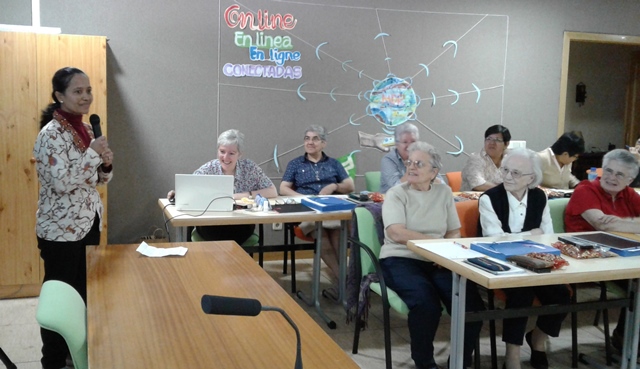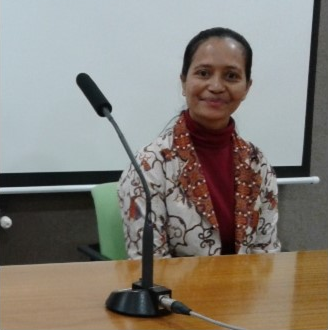Missionary experience in Barañain, Pamplona
- Hnasmdro
- May 25, 2020
- MDR Experiences
- 0
- 476


The mission has been, is, and will be an unforgettable and a once-in-a-lifetime experience for me. It is a joy and plenitude feeling that it cannot be compared to any other luxury that we have in our everyday life. The mission involves many pleasant experiences despite the challenges that are also part of the missionary life. The missionary experience is expressed as a life novelty in all the dimensions of personal and communitarian existence. It must also be a way for meeting people, communities and God’s people to communicate and share with them the good news of the Gospel, the love and goodness of God.
Arriving and reception
Before I came to Spain, I worked as a teacher in a primary school in Timor. It was a time in which I was preparing my documents for getting the visa por coming to Spain, something that was difficult to obtain. There were so many protocols to follow and so many papers to fill out that delayed my arrival to Spain that I thought about if it was worth the effort. It was also an important experience.
Finally, I was able to come to Spain. I arrived on September 12th, 2018, almost two years ago. Three sisters went to Madrid’s airport to welcome me. They took me to the shelter house on Carlota O’Neill street in Madrid. The sister of this community live with the General Team. I came to Spain in summer, but I did not have much difficulty to adapt to the temperature, because the weather in Spain in summer is similar to the weather in my country. In Madrid I was preparing and fixing all the necessary documentation for continuing my trip to Barañain. I started studying Spanish -I still study with the sisters. Honestly, during all this time I had great experiences. My staying and experience in this community, including the infirmary, helped me to know the sisters personally, who also helped me to share communitarian life in the community. In fact, for me it has not been easy to learn Spanish. When I started to feel more comfortable with the language, I started to work in the infirmary.
I arrived to the Barañain community on September 19th, 2018, and its members accepted me very well. However, when I arrived to Pamplona, I found a different form of speaking Spanish. This was a shock to me, because at the beginning of my stay in Pamplona I did not understand very much how people spoke, but little by little I got used to the way they did it. It was a boring time since I did not have any activity to do, though I collaborated for some time for accompanying the sisters. Then, as I did not have many things to do, I used my time for improving mi knowledge of the Spanish language.
My work in the infirmary
I started working in the infirmary on March 1st, 2019. I was very well accepted and the sisters treated me very well. In the infirmary we have two daily shifts: in the morning and the afternoon. In fact, I am very happy with my workmates. They are good people with a humble and open heart. In the infirmary there are three groups that work perfectly. It is a well-organized infirmary.
“In 2017 I was in Barañain visiting the sisters and I was moved by the reality of the sisters that have spent their lives in the mission, whose example awoke in me the curiosity of being able to give some of my time for serving them”
“I offered myself because I think it is a good mission to help older and sick sisters”
Joy
Barañain has two communities: A and B and the infirmary is for both communities. I found people with sincere hearts, polite and friendly. I am very happy to work with them. There, I am working as a nurse assistant. In a living and organized community, this is important because it makes me feel welcomed. This is an advanced community in relation to the communitarian life, because everybody feels important and welcomed. Everybody collaborates freely in the communitarian activities, especially in valuing the communitarian and spiritual lives of the people. Here, I feel totally the opposite to individualism and selfishness, which are growing in this part of the world.
Culture and challenges
Somehow Spanish church customs and culture are a little bit different to what I experienced in Asia, especially in Indonesia and Timor-leste. Being conscious that the universal church is only one and catholic, we cannot forget that in every country ecclesiastical culture has a peculiar way of expressing itself. Here, most parishioners are old people. This is the situation of the church in Europe, which means that in general I think young people are needed. This is very sad, because it casts a shadow over the Church’s future in this part of the world. However, there is not much to say about it, since it is the culture that this people has been expressing for many years.
The founders of the Dominican Missionary Sisters of the Rosary, Monsignor Ramon Zubieta and beatus Ascension Nicol Goñi told first European missioners who went to Latin America: “Don’t go there to change their culture, go there to live in their culture and attract them to Christ Gospel.” In the same way, my presence in Spain as missionary is for sharing the love and joy of Christ Gospel with God’s people, respecting their culture and way of living. We can say that Spain is a catholic country theoretically, but in practice you don’t feel it very much. Anyway, we must do everything we can to transmit Jesus Gospel being conscious of the real circumstances about religious world in Spain and other parts of Europe.
Acknowledgement
I want to thank God for the opportunity he has given me, to share an experience in two communities in need and with sick sisters. I also thank the sisters of the General Team, who allowed me to develop the project I wished. I thank especially to the sisters of my province (San Luis Beltran) for the opportunity and confidence they gave me for dedicating myself with love to the missionary work of giving and receiving affirming life with a future entrusted to God and everything that God gives me every day.
With love and caring to all the sisters,
Natalia Fouk Marek
